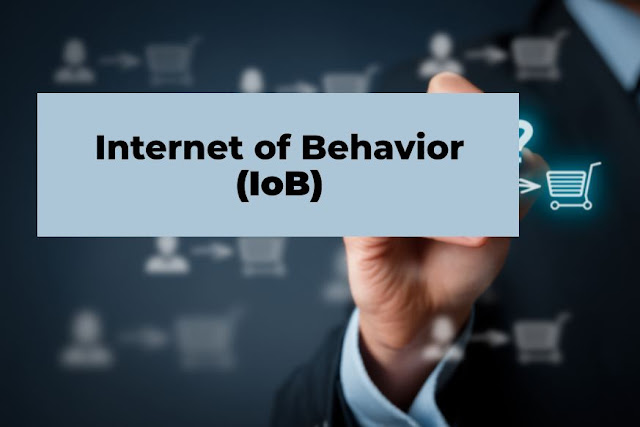You may have heard the term "Internet of Behavior" or IoB used before but aren't quite sure what it refers to. IoB is a term that is being used more and more as companies strive to collect data on user behavior in order to better target ads and improve the overall user experience. In this blog post, we'll give you a brief overview of what IoB is and some of the benefits and advantages it offers.
Internet of Behavior: The Definition, Benefits, And Significance
The Definition of IoB
What is the Internet of Behavior? is the use of computers to observe and affect the behavior of people or groups of people. In other words, it is a way for computers to interact with humans through their behavior. This can be done through monitoring and tracking people's movements, analyzing their data, and influencing their decisions.
IoB can be defined as "a data-centric approach that analyses human behavior to generate actionable insights to drive better business outcomes." In other words, IoB refers to the collecting and analyzing of data on user behavior in order to glean insights that can help improve the user experience and increase conversions.
Some of the ways in which data may be collected include GPS tracking, cookies, server logs, social media posts, and purchase histories. This data can then be analyzed to identify trends and patterns in user behavior. Based on these insights, companies can make changes to their products or services with the goal of increasing customer satisfaction.
4 Benefits of Implementing IoB
There are many benefits that come with implementing an IoB strategy. Some of these benefits include:
- Improved customer targeting;
- Increased customer loyalty;
- Higher conversion rates;
- Reduced marketing costs.
The 4 Benefits of Implementing IoB explained
- Improved Customer Targeting: One of the main goals of IoB is to collect data on customer behavior so that companies can better target their ads and marketing efforts. By understanding what customers want and need, companies can create personalized messages that are more likely to resonated with customers, leading to increased sales.
- Increased Customer Loyalty: Another benefit of IoB is that it can help increase customer loyalty by providing a better overall experience. When customers feel like they are being catered to and their needs are being met, they are more likely to remain loyal to a company.
- Higher Conversion Rates: Thanks to improved customer targeting and increased customer loyalty, implementing an IoB strategy can also lead to higher conversion rates. In fact, studies have shown that companies that use IoB strategies see an average uplift of 10-30% in conversion rates.
- Reduced Marketing Costs: Finally, another benefit of IoB is that it can help reduce marketing costs. This is because IoB helps companies focus their efforts on those individuals who are most likely to convert into paying customers. By doing so, companies can save money by not wasting their time and resources on marketing campaigns that are less likely to be successful.
Final Words on IoB
There are many benefits to using the IoB. First, it can be used for research purposes. For example, scientists can use it to study human behavior in a controlled environment. Second, it can be used for marketing purposes.
By understanding how people behave, businesses can create targeted ads and products that appeal to them. Third, it can be used for security purposes. By monitoring people's movements and activities, authorities can better protect them from threats.
The IoB has also been gaining increasing significance in recent years. As more and more devices become connected to the internet, the amount of data available for analysis will continue to grow. This will allow businesses and governments to better understand human behavior and make more informed decisions accordingly.
